Catalyzing Entrepreneurship to Flip the Script on Refugee Assistance
Why Entrepreneurship?
The international community is struggling to effectively respond to the challenges posed by protracted conflicts including the global refugee crisis. With finite resources to respond to mass migration, social tensions arise as perceptions persist that migrant communities take pieces of the pie away from host communities.
We're flipping the script on that narrative. The LIFE Project believes that supporting entrepreneurs expands opportunities for refugees and their host communities alike. Within the Food Enterprise Centers (FECs), members of both communities come together to grow the pie, literally and figuratively. By opening new businesses, creating jobs, and generating revenue, refugees are agents of economic growth in their host countries.
Rajaa Belkasem
“I benefited a great deal during the [LIFE Project Entrepreneur Incubator] and met a network of women working in the food sector who were a lot like myself. I started getting so many ideas, [and] after some re-shaping, I decided to [launch] a website that would allow me to gather my fellow project members who had the skills but lacked experience. I called the website Good Moms. It became an electronic platform for women I work with to [take orders that they can] cook from their kitchens.”
Rajaa Belkasem is a Syrian entrepreneur and graduate of the LIFE Project Entrepreneur Incubator in Istanbul. After moving to Turkey, Rajaa started working with a group of divorced and widowed women making traditional Makdous, and soon grew the business into a wholesale production factory for Damascene staples. She is the founder and manager of Good Moms, a platform connecting home cooks with customers in their communities.
Why Food?
With relatively low barriers to entry, the food sector offers a unique opportunity for refugee entrepreneurs to put down social and economic roots in their host communities. By creating food businesses, refugee entrepreneurs not only contribute to the local economy; they also share their own culinary heritage with their new neighbors. Meanwhile, Turkish food entrepreneurs can learn and grow their own ventures by connecting with their counterparts from refugee communities. Through the shared language of food, refugees and host communities can form cross-cultural ties that may not otherwise exist.
Artun Unsal
“Food proves to be a powerful tool that brings us all together, as the LIFE Project exemplifies. People from many countries come together in the LIFE kitchens, learning from each other and mentors the skills needed to be successful in their own businesses and support themselves. In this way our community feels a little more tight-knit, as we see that sharing our culture is a welcoming act of love.”
Born in Istanbul, Artun Unsal has written several books on Turkish Food Culture including his latest, İktidarlarin Sofrasi- Yemek, Siyaset ve Simgesellik or The Table of the Powerful- Food Politics and Symbolism.
Why Now?
As conflict and climate change continue to force migration around the world, long-term solutions to support refugees are becoming increasingly necessary. It is clear that many of these refugees will remain in their host communities for indefinite periods of time, well beyond the capacity of traditional approaches to refugee assistance.
Now is the time to reimagine refugee assistance to meet this growing need. It is the time to test, validate, and scale new approaches with a mind towards sustainability, opportunity, agency, dignity, and hope.
In three short years, the LIFE Project’s Entrepreneur Incubation program has graduated 12 cohorts of refugee and host community members, offering training, opportunities for financial support, and access to commercial kitchen space and professional advisors. Through participation in this initiative, our members build the skills, knowledge, and networks to launch their ventures.
Together, we are helping communities put food on the tables of our members and their customers.
Dr. Johanna Mendelson Forman
“Over the course of the LIFE Project I have come to understand and respect the distance that so many home cooks have traversed not only from the lands that they fled, but also from the kitchens where no one used a recipe to an entrepreneurship program where training required that they create written ones from their food memories. This is a new step in the creation of a food entrepreneur, but also an important step forward as women and men start new lives in the kitchen by using the past to create new beginnings”
Dr. Johanna Mendelson Forman is a Distinguished Fellow at the Stimson Center, leading the Food Security Program and a LIFE Project Consortium Partner
Our Story: The Journey of a LIFEtime
A Message from our Consortium Lead
Over the past three years, the LIFE Project has transformed the refugee livelihoods space while opening the door to a new kind of entrepreneurship incubator in the Turkish market. We have helped food entrepreneurs from 10 countries create new opportunities for their families, for their communities, and for themselves.
Our progress in the last three years speaks to our mission: to support and encourage entrepreneurship, job creation and cross-cultural engagement in the food sector. Food provides pathways for cultural preservation and exchange, while entrepreneurship provides agency and dignity to those who are often overlooked. The LIFE Project has achieved incredible results in a short time because of our global network of consortium partners, dedicated staff, and most importantly, the LIFE Entrepreneurs whose energy and enthusiasm make this all possible.
Thank you for your support.
- Marie Principe, Program Officer, Center for International Private Enterprise (CIPE)




